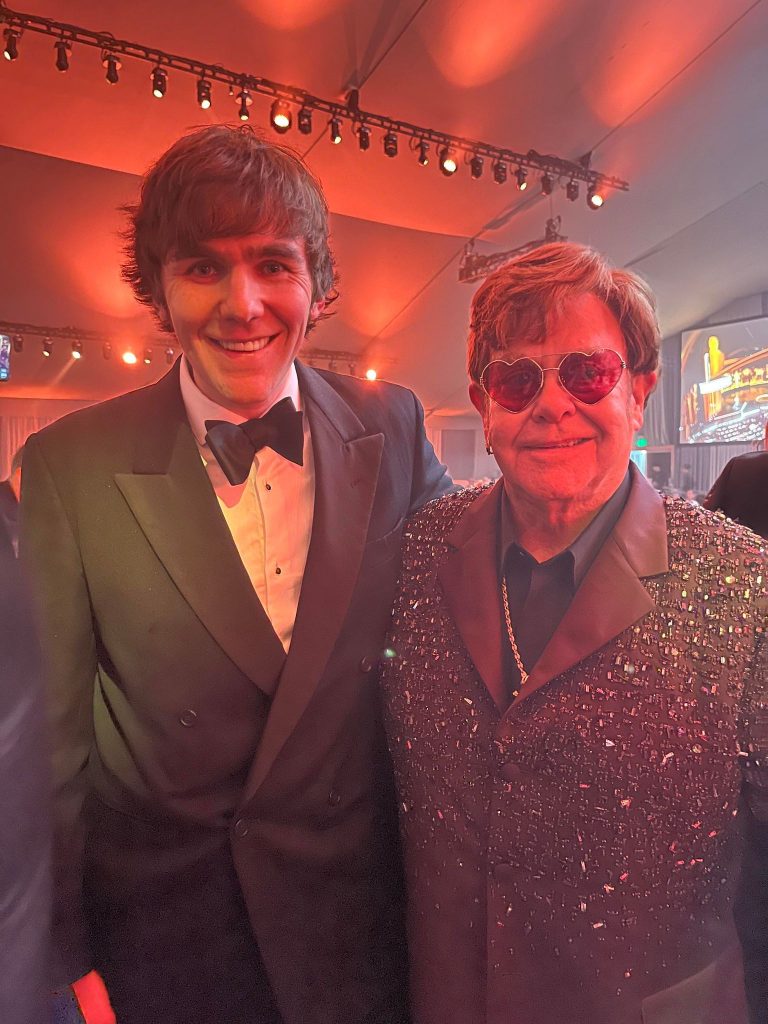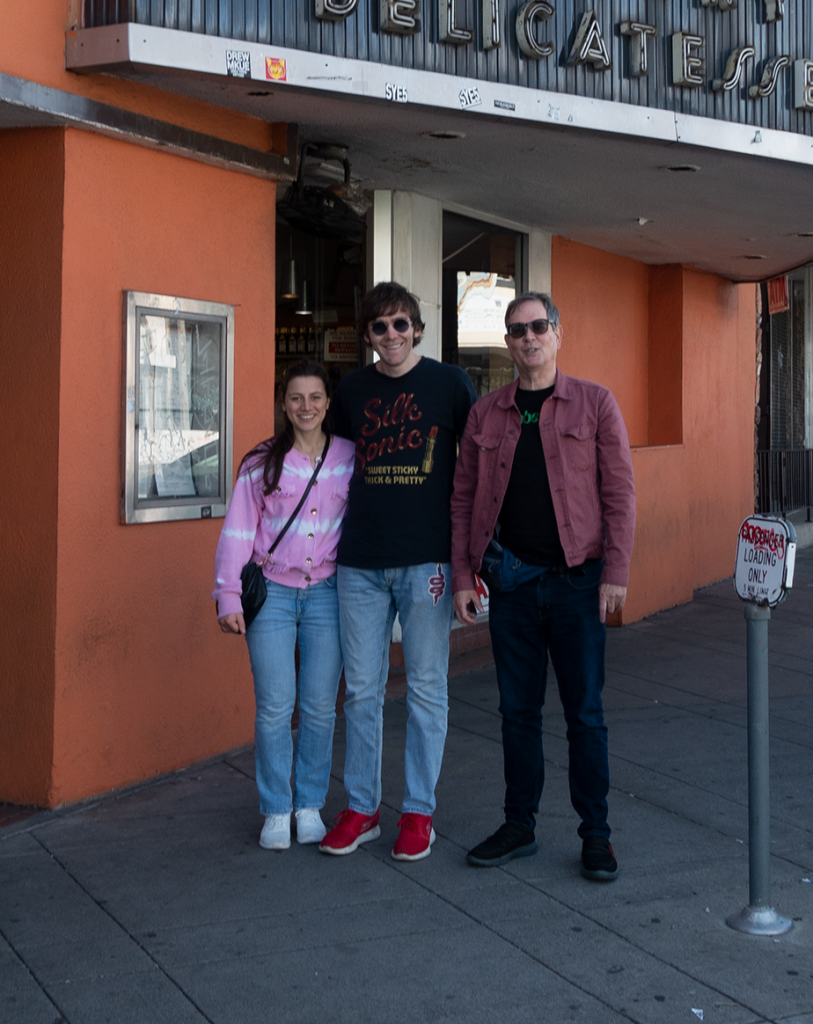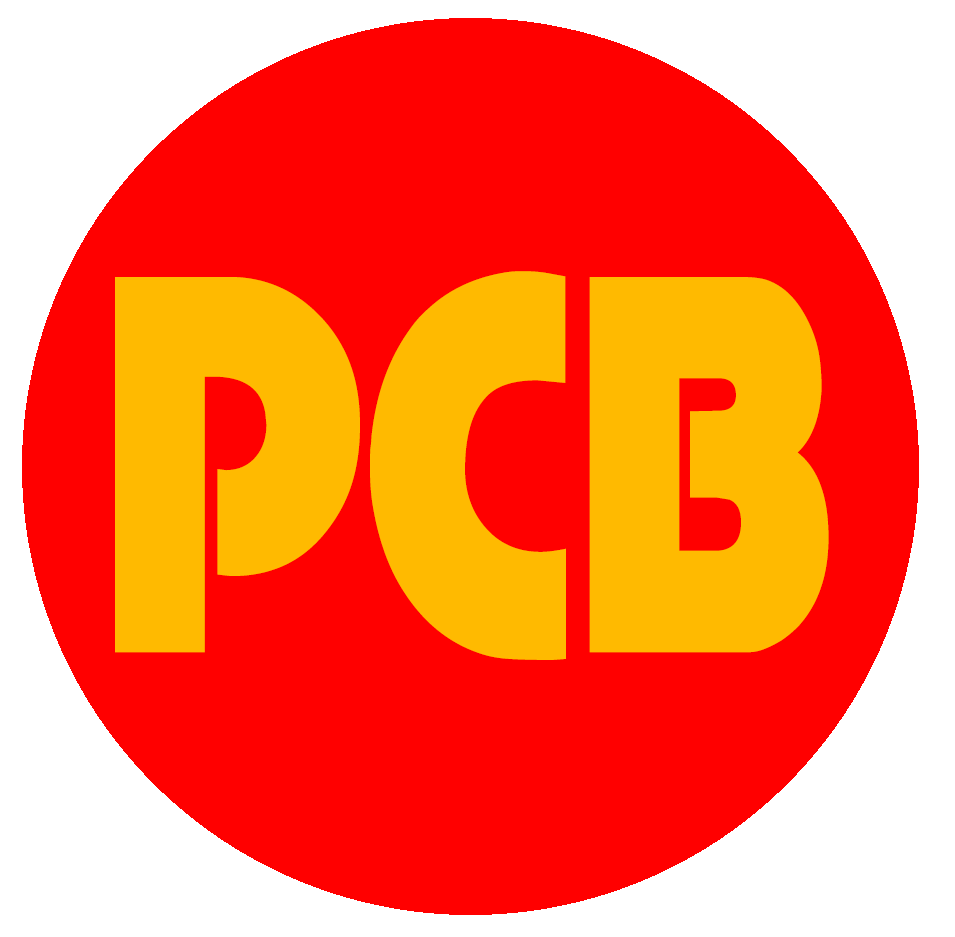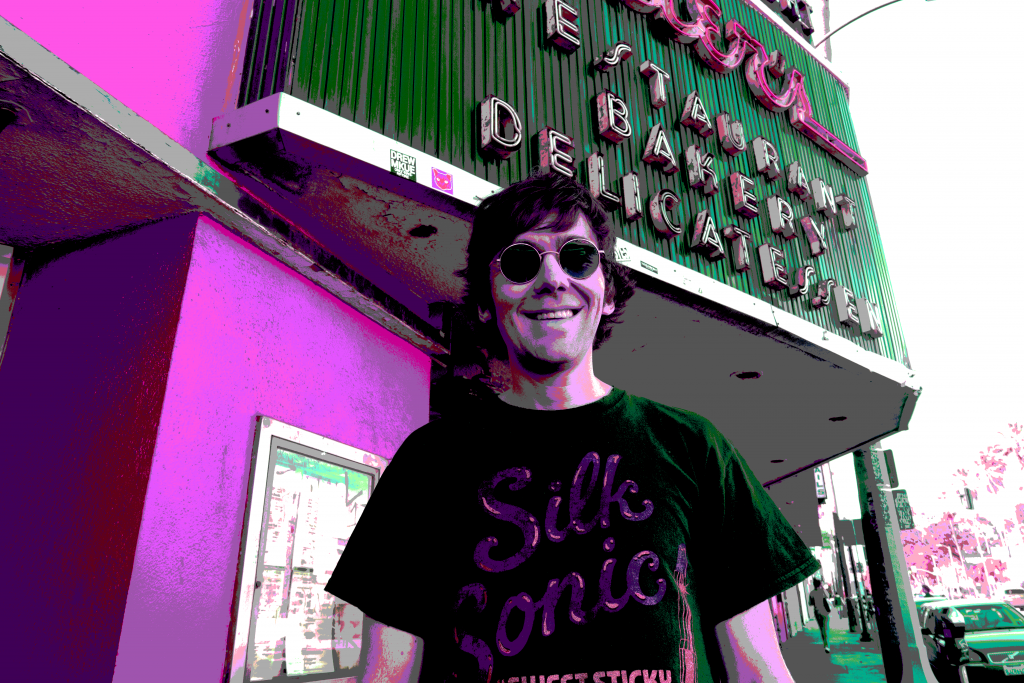By Keith Walsh
Tom Cridland is one of the most restlessly creative and industrious people I have ever met. With the help of his fiancée and business partner Deborah Marx, Cridland has launched a leading sustainable fashion brand and a public relations firm, released three killer rock and roll albums under the Tomicks name and more than 100 tunes as a solo artist, toured with The Stylistics, and interviewed more than 200 legends for his Greatest Music Of All Time podcast– all before turning 32. He’s just released his spicy memoir, ‘Million Dollar Addict.’ In Part 2 of my interview with Cridland and Marx at Canter’s Delicatessen in Los Angeles, we dig into more details in an effort to reveal the secrets of his success.
PCB: The other night you met Elton John at his annual party. How did you approach him?
Tom Cridland: Well, we were at the Oscar party, and we sat two tables away. And so I thought it would be good to introduce myself. So Debs actually went up to him and said ‘thank you for being such an inspiration for Tom’s sobriety.’ And he was very friendly, we shook his hand and took a photo, and it was a very nice encounter.
PCB: Does he know you have an Elton John tribute act?
Tom Cridland: No, I didn’t want to get into that.
PCB: Did he know that you were from The Tomicks, the band that his Rocket Music was giving informal advice to?
Tom Cridland: We didn’t have time to get into that either. It was a pretty brief conversation. It was mainly about sobriety and thanking him for having us at the party, and that was the extent of that. We were lucky to get that, because there were one thousand, two thousand people maybe, at his Oscar party….We were really lucky to have that, even. If we weren’t sat two tables away, I don’t think we would have met.

PCB: About sobriety. Are you at the point where you can’t have one drink?
Tom Cridland: I haven’t had a drink in nearly six years.
PCB: If you had one, it might be the domino effect. You’re serious about it.
Tom Cridland: Yeah, yeah. I’m not so serious where I go around Puritanical, lecturing…
PCB: Those are the worst kind of recovered alcoholics.
Tom Cridland: Yeah, they’re really annoying. But everybody’s got to do it their own way. So if you’ve got to be annoying, be annoying.
PCB: We spoke about Elton’s AIDs foundation and how he started that when he was 50 years of age or so, not so early in his career.
Debs Marx: You need the time to put everything into it. If you’re really going to do something.
Tom Cridland: And I do want to give back. I want to be able to have a big house for my family, to be able to bring up my babies…
PCB: Being a parent will give a new depth to your songwriting. I could see you doing something reflective….
Tom Cridland: Like a James Taylor album, or a Babys album.
PCB: Elton’s songs and Bernie’s lyrics, they’re very introspective.
Tom Cridland: Oh yeah, I love that type of music.
PCB: Your early stuff is kind of urgent, more youthful. Elton, even in his twenties was kind of reflective, you know what I mean?
Tom Cridland: Remember, with The Tomicks stuff, I’ve only just learnt how to play piano, choose the chords, choose the vibe. I probably would have wanted to go more reflective, and more ballads earlier. But Nick (Whitehead, The Tomicks’ keyboardist) likes blues, Nick loves The Stones and stuff more than me. There’s a new Tomicks album coming out later this year.
PCB: Corporate Psychopath was the previous one. Then you released your 100 plus song boxed set. I noticed that you approach a variety of styles very fluently. There’s comedy rock there, there’s some country-esque.
Debs Marx: So many styles. There’s even a rap song.
Tom Cridland: A lot of that’s been stripped down now. There’s only 33 songs online now. Because I just feel like if people want to Google my music, I wanna put the songs that best represent me. They could listen to one out of 107 and it could be like a comedy rock thing, and they might think I’m like Weird Al, you know what I mean?
PCB: That’s a mistake people make, yeah.
Tom Cridland: People do judge a book by its front cover these days.
PCB: What was the more valuable education for you – college, or touring with your band, or developing your fashion brand? What was the most useful to you in terms of growth and learning?
Debs Marx: Definitely not college.
Tom Cridland: Well, academically or professionally, no. But we did have a really good time there. To meet people, grow up quite a lot. That was definitely fun, but it was quite feckless.
Debs Marx: We learnt how to live, how to throw a dinner party, that type of thing.
Tom Cridland: I do like being on tour, I find that really fun, really productive. It’s easy to do other work, I find, like in the car. I can work a full eight-hour day, and play a gig in the evening. It’s essentially productivity all day.
PCB: You’re always seeking stimulation, always traveling, reaching out…
Tom Cridland: Yeah, I like to make the most of things.
PCB: Who instilled that love of adventure into you, or what? Was it natural, was your dad like that?
Tom Cridland: To a certain extent. My dad is a very civilized person. He traveled a lot when he was younger. He did go to Afghanistan, and all types of places.
PCB: For what purpose?
Tom Cridland: Just to see the world.
PCB: Afghanistan? That’s a very ususual destination.
Debs Marx: He was like 18.
Tom Cridland: That was before the war. People actually did go. (My parents) travel less than we do. But they have travelled.
PCB: Would you describe your book Million Dollar Addict as a self help book?
Tom Cridland: It’s like a self help book that also aims to be a bit more entertaining and less sanctimonious than other self help books. And tells some stories, that are a bit more gritty. And it’s a bit of a piss take as well, of other self help books.
PCB: You wrote in the beginning you’re not going to lay into other people.
Tom Cridland: I tried not to slag off anybody in the book. What’s the point in putting out hate and negativity in a book? It’s a fine line though, because when you have bad experiences….There’s probably two instances of that in the whole book where I’m like this person was actually really horrible. I approach it more from the lens of ‘they were horrible, and that made me really upset, but then I did this, and I felt more positive.’ It’s not to attack them. I also say, ‘maybe he was just having a bad weekend or something. Maybe he’s alright.’
PCB: In Million Dollar Addict, you don’t mention how you were hustling to promote the first Tomicks album, the subway signs, bringing CDs to radio stations….
Tom Cridland: There’s a photo of them (the subway signs) . There’s so many different things that we’ve tried, the subway ads, I do actually include a photo of us posing next to one of them. It’s just a snapshot, in 300 pages it’s a snapshot. It doesn’t include everything. I’m glad you were saying that it’s like a kind of Hunter S. Thompson thing, and it was very honest, because my worry was ‘oh, was it not gritty enough?’
Debs Marx: I guess to us, there’s no surprises, and we don’t view it as shocking.
PCB: Why release the book now, instead of when you have your Top 5 single or whatever you might get later on?
Tom Cridland: Well, I’m not even doing original music at the moment, I’m just doing my Elton tribute.
PCB: There’s the new Tomicks album.
Tom Cridland: But I won’t promote that. I’ll literally just dump that online. ‘Cause The Tomicks, I have nothing left in the tank for marketing of The Tomicks. If people want to find it, they can find it. But I just want to make some money off the Elton project. I don’t want to waste a single second trying to hustle something when people have such ADD now they’re not going to get through whole albums.
PCB: With the Elton project, you’re getting paid to play live, that’s more lucrative than The Tomicks?
Tom Cridland: Yeah. People know old Elton songs. I love playing them. I have no hangups, I have no arrogance. I know The Tomicks albums are good, I know I’m a good songwriter, I know how to make records, but no one gives a sh%t about making records. You have to be a big star and then you might be able to get people to listen. And the reason to do the book now is to remember all the stories from the last ten years. Otherwise, in ten years I’ll forget them. Because I’m sure we’re going to have another crazy ten years. So maybe I’ll write another one!
Debs Marx: You can never wait for the perfect moment. It’s like when people launch a website. It’s good to get things right, but….
Tom Cridland: It’s like launching a business venture, to put down everything that we’ve done.
PCB: That’s one of the tenets in the book, ‘Don’t Postpone Your Ambitions’
Tom Cridland: I just wanted to. I was thinking ‘maybe I should do a book, maybe I should do a book,’ and I thought ‘I’m just going to get this done.’ Actually I wrote it in January. Just wrote in all in that month.
PCB: That’s like stream of consciousness, but you’re very articulate, so it’s not a problem.
Tom Cridland: It is all stream of consciousness, yeah.

PCB: Do you see a great increase in your productivity and clarity when you’re sober?
Tom Cridland: Yep, you’re more yourself. When I’m drunk all I want to do is listen to Phil Collins or Simply Red in the corner, I’m just going to get really battered, don’t talk to anyone. And then I’m a bit of a dick as well.
PCB: You were more isolated? The problem also is, the next day, you’re not functioning at your best.
Tom Cridland: Yeah, I wouldn’t do any exercise or anything like that.
PCB: Would you like to be a household name?
Tom Cridland: I wouldn’t mind either way to honest. After some of the celebrity culture that I’ve had a chance to see firsthand, I think really aspiring to fame is a really slippery slope. I aspire to happiness, I aspire to love and family, and I aspire to…I want to make some money. And I want to have creative fulfillment, and do things I enjoy. But I really don’t care about fame. Probably that’s a good thing, because I don’t think there’s any risk, there’s no danger of being famous.
PCB: You saw the other night how they treated Elton.
Tom Cridland: Yeah, he said hello to lots of people – there we just so many people in the room. It wasn’t just the way people were with Elton, it was the way people were in general.
Debs Marx: With each other as well. Like ‘oh you’re no one, so I’m not going to bother talking to you.’
Tom Cridland: Not necessarily when they were talking to us, but I just did a glance to the other tables, and no one was talking to each other. Everybody was on their phones. Everybody was looking around ‘who’s famous here, who’s famous here?’
PCB: Where was it held?
Tom Cridland: It was held at West Hollywood Park. Some people were famous, probably like 10 percent maybe? The rest of them were either like people with money or people who want to be famous.
PCB: You’re a strong believer in having a pitch, like an elevator pitch, and a story. So how does someone develop a story and a pitch?
Tom Cridland: It’s difficult. You’ve just got to try lots of things, and live life to the fullest. And then you’ll probably end up with a story to tell. I’ve tried loads of businesses, I’ve tried fashion, I’ve tried the PR agency, I’ve done music, podcasts…
PCB: The phone chargers, when you were in college…
Tom Cridland: Right! Those things that I forget about, it was only because of the book that I remembered that. But every month or every week we’ve got some crazy thing going on.
PCB: And about the Greatest Music Of All Time Podcast – Debs, what’s his magic that he can get all these wonderful artists to talk to him?
Debs Marx: Just a combination of things. You’re not scared of a no. I think a lot of people worry too much about what the outcome might be, that they don’t even do it. (To Tom) And maybe you don’t even think about it. If you want something, you put your mind to it….
Tom Cridland: The way things work today, is that everybody does stuff because they want other people to know that they’ve done it, for other people to see that they’ve done it. That’s why social media is so big. We don’t just go on holiday, we don’t just do something, we photograph it, and put it online as well. The reason I don’t have a fear of failure, or a fear of wallowing in rejection, is because I actually don’t care about the outcome. I hope the outcome’s good, but if the outcome’s not as I hoped, I don’t care, because I have enough self worth anyway.
Debs Marx: Also, you have genuine interest. You’ll invite someone onto the podcast even if they’re not nearly as famous and none of our friends would even know who they are, but you’re genuinely interested yourself. Where a lot of people would say ‘well if they’re not famous, then there’s no point.’
PCB: There’s an old book “Do What You Love, And The Money Will Follow.”
Tom Cridland: Sometimes I wonder though today, with ChatGTP and people not listening to albums anymore, more in terms of music, and reduced attention spans, I sometimes wonder ‘is that actually true?’
PCB: Are you worried about the generation of music coming up?
Tom Cridland: I just want to listen to old stuff. I’ve nearly given up on the new stuff. I just prefer the sound of the old records. They’re recorded differently. They’re mixed differently. They’re marketed differently.
PCB: Everything’s electronic, it’s all digital.
Tom Cridland: Yeah, it’s not going to sound like that.
PCB: There are some good hooks. I think Justin Bieber, the song “Peaches” is good. Check out Miley Cyrus’ “Flowers.”
Tom Cridland: Keith –what’s wrong with you Keith? Oh my God. I think we’re going to need to get your ears checked.
PCB: I need therapy. This is kind of a mean question. You’ve written a book of advice – how do you respond to the maxim that advice is worthless?
Tom Cridland: I agree. Advice is worthless. But people love it now. People love all these entrepreneurship hustlers. There’s a book called How To Get Rich by Felix Dennis, which it does what I’m trying to do much better. It has advice in it, but it’s also mocking people giving advice. It’s a really wonderful book. And…that was my intention. It was trying to be like the Felix Dennis How To Get Rich vibe. It’s like ‘I’m not taking myself seriously,’ giving people advice, but like there is some kind of semi-serious advice in there. Actually, some of the stuff in there is quite useful, if you want to do what I’ve done. I’m not saying that I’m successful, but I’m saying if you want to try and do a startup, there are definitely some things I mention where you could avoid going wrong. And if you’re thinking about ‘oh do I drink too much?’ or whatever, hopefully there’s some good advice that’s not too finger wagging in there.
PCB: As you said, your advice is basic. It’s work hard, be sober, and use your talents? And also show your love to those who love you and support you.
Tom Cridland: It is pretty basic stuff. I don’t know what else there is. What else is there? We don’t need more than that.
Tom Cridland dot com
Tom Cridland YouTube
Deborah Marx Management
Tom Cridland “Million Dollar Addict” Interview Part 1
Tom Cridland On Popular Culture Beat
finis


2 thoughts on “Q and A: ‘Million Dollar Addict’ Tom Cridland On Fame, Sobriety, Meeting Elton, And The Value Of Advice (Part 2)”